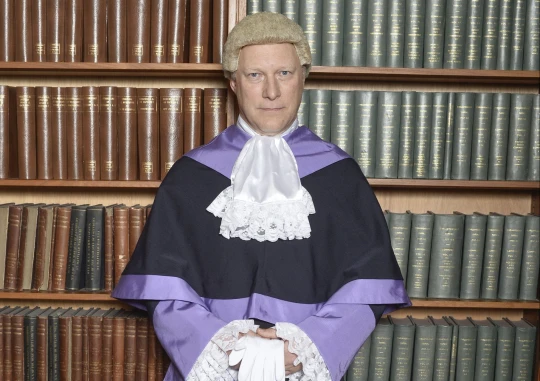By Charlie CarMichael-
The Crown Prosecution Service (CPS) has launched a legal challenge after several Uk judges released suspects on bail because delays caused by the barristers’ strike meant they had exceeded their custody time limits.
The CPS has been granted the right to have a judicial review of at least three cases where judges rejected an application by a prosecutor to extend the custody of suspects beyond the limit. Judges rulings are very rarely challenged by the CPS, and the legal challenge brings to sharp focus the discretion of judges in judicial review cases.
In one case the Recorder of Bristol, Judge Peter Blair QC, (pictured)refused to extend custody time limits and granted bail to a defendant, saying “the state has had many months to resolve the current dispute.”
The judge made reference to “chronic underfunding” of the criminal justice system and said, “The state has had many many months in which to resolve the current dispute over the requisite level of remuneration to pay in order to attract the services of barristers to act on behalf of people benefiting from Representation Orders.”
Judge Peter Blair has faced criticism in the past over some of his rulings.
In April 2016, he gave a sex offender the freedom to party at Glastonbury after lifting his curfew on Friday. Harry Webb, 21, who was under the influence of drink and drug had sexually assaulted a young barmaid after she fell asleep at his home but was spared jail.
He was handed a three-month curfew as part of his suspended prison sentence, which means he must be at home from 8pm until 6am. The barmaid, he assaulted, who cannot be named for legal reasons, called Judge Peter Blair’s decision a ‘disgrace’.
Earlier this month the new Justice Secretary, Brandon Lewis, was urged to negotiate with the Criminal Bar Association (CBA) or risk a situation “where you have people on the streets who you would rather not have on the streets.”
Under the Custody Time Limits (Coronavirus) Amendment Regulations the custody time limit of 182 days for indictable-only offences like murder and rape was extended to 238 days.
Normal grounds for increasing custody time limits beyond the usual by a judge include circumstances where a defendant or a key witness is ill, or for “some other good and sufficient cause” and if the “prosecution have acted with all due diligence and expedition.”
Several judges have ruled the refusal of a barrister to represent his client because he or she is on strike is not “sufficient and good cause” to deny the defendant the right to be released from prison on bail.
The CPS argue that the courts are setting a dangerous precedent which could lead to an increasing number of defendants, some of whom are facing extremely serious charges, being released on bail.
Earlier this week four people accused of murdering a 40-year-old man in the garden of his home in Oxfordshire were released on bail.
Prosecutor Vanessa Marshall KC asked to extend the custody time limits for the four, who have been in custody since February, after their trial was postponed this month because of the strike.
The Recorder of Oxford, Judge Ian Pringle KC, said there was not “good and sufficient cause” to extend the custody time limits.
Last week Pringle refused to extend the custody time limits for a defendant accused of sexual assault and released him on conditional bail.
Pringle in that case said the prosecution may have “good grounds” for keeping the defendant in custody but he said, “They do not amount to a ‘good and sufficient cause’ so that a time limit introduced by the government for those defendants held on remand may be automatically extended because there has been a failure to solve a long-running dispute with those who represent legally aided defendants.




